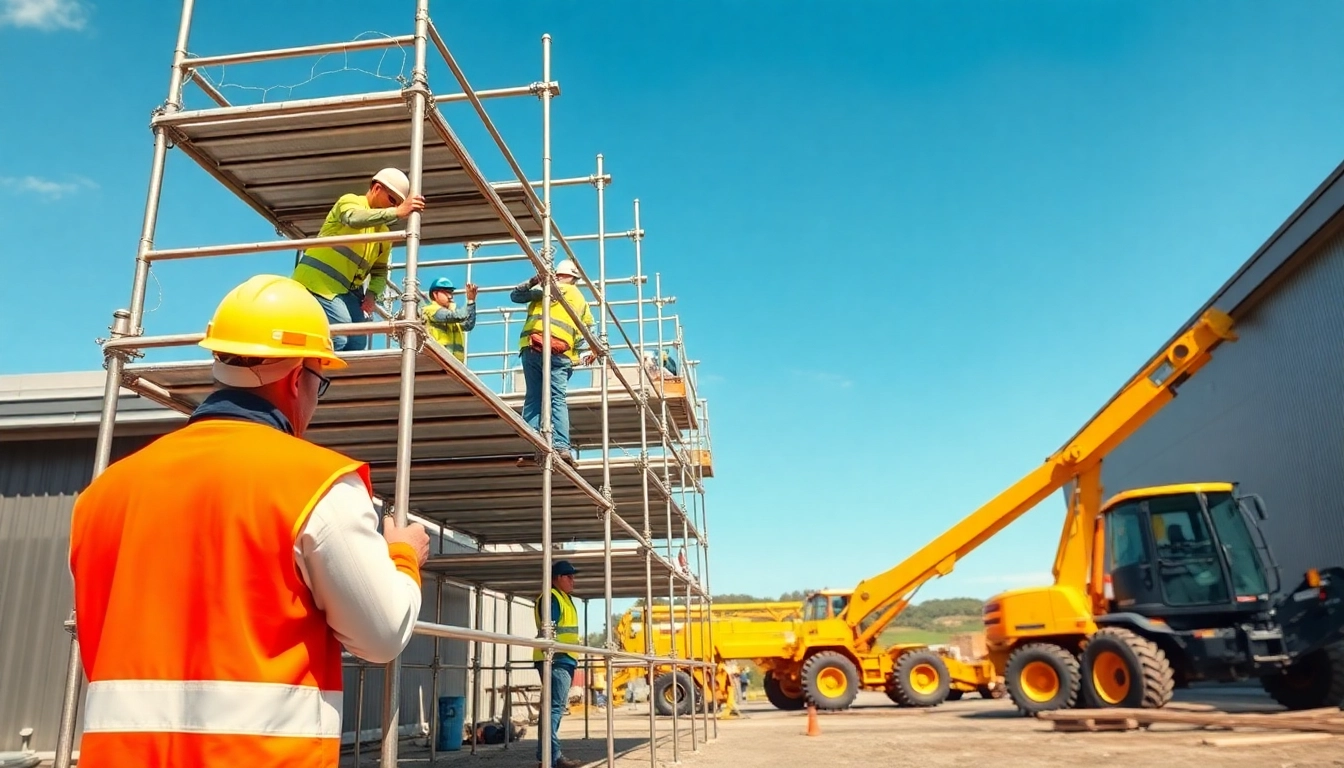Understanding NVQ Level 4 Crane Supervisor Requirements
What is NVQ Level 4?
The NVQ Level 4 qualification is designed for professionals within the construction industry looking to obtain formal recognition of their expertise, specifically in supervisory roles. This qualification is pivotal for those aiming to enhance their skills in managing lifting operations and ensuring safety standards at construction sites. With a focus on leadership, the NVQ Level 4 guarantees that candidates are equipped to oversee complex lifting operations effectively and responsibly. Achieving this qualification showcases a commitment to professional development and proves a deep understanding of both legislation and practical applications in crane supervision.
Key Responsibilities of a Crane Supervisor
A Crane Supervisor plays a vital role in construction projects, ensuring that lifting operations are conducted safely and effectively. The primary responsibilities include:
- Planning Lifting Operations: Involves assessing job sites, selecting appropriate lifting equipment, and determining the most efficient lifting processes.
- Conducting Risk Assessments: Performing thorough risk evaluations before commencing lifts, identifying potential hazards, and developing safety measures to mitigate risks.
- Overseeing Personnel: Supervising the lift team, ensuring all members understand their roles, and conducting briefings to communicate the lift plan.
- Maintaining Compliance: Ensuring that all operations adhere to legal and safety regulations, as well as industry standards.
- Training and Development: Mentoring junior staff and providing training in lifting operations and safety practices.
Assessment and Evaluation Criteria
The assessment for NVQ Level 4 typically involves a combination of practical demonstrations and theoretical examinations. Candidates are evaluated based on several criteria:
- Knowledge Assessment: Understanding of regulations, lifting techniques, and equipment.
- Practical Application: Demonstrating the ability to plan and execute lifting operations safely.
- Documentation: Ability to produce necessary paperwork, including risk assessments and lift plans.
- Reflection on Practices: Candidates must reflect on their own practice and any improvements they would make in future operations.
Common Challenges in NVQ Level 4 Crane Supervisor Assessments
Study Preparation and Material Gathering
Preparing for the NVQ Level 4 assessments can be daunting. Candidates often grapple with material selection and understanding the specifics of the subject matter. It is crucial to gather comprehensive study materials, including textbooks, online resources, and any relevant legislation on lifting operations. The importance of organized notes and a study schedule cannot be understated, as these will provide a structured approach to covering necessary topics thoroughly.
Time Management During Assessments
During assessments, effective time management is crucial. Candidates may find themselves overwhelmed when faced with a lengthy list of questions or tasks. Strategies such as prioritizing questions based on confidence levels and allocating specific time slots for each question can help manage this pressure. Practicing under timed conditions can also enhance candidates’ ability to work efficiently when it comes time for the actual assessment.
Dealing with Examination Anxiety
Examination anxiety affects many candidates, often resulting in decreased performance. To tackle this issue, several techniques can be applied. First, familiarizing oneself with the exam format and question styles through mock examinations can bolster confidence. Additionally, mindfulness and relaxation techniques, such as deep breathing exercises, can help reduce anxiety levels. It’s essential to maintain a positive mindset and remember that adequate preparation will lead to success.
Detailed NVQ Level 4 Crane Supervisor Answers
Sample Questions and Suggested Answers
Here are several sample questions commonly encountered by candidates during their NVQ Level 4 assessments, along with suggested answers that reflect a comprehensive understanding of the material:
Question 1: What are the main regulations governing lifting operations?
Suggested Answer: The primary regulations include The Lifting Operations and Lifting Equipment Regulations (LOLER) 1998, which mandate that all lifting operations must be properly planned, supervised, and carried out in a safe manner. This includes the use of certified equipment and appropriate personnel trained in operating lifting machinery.
Question 2: How do you ensure the safety of personnel during lifting operations?
Suggested Answer: Ensuring safety involves developing a comprehensive lift plan that outlines the operation’s details, conducting pre-lift briefings with the team, adhering to safety regulations, and monitoring the lift continuously for any hazards. Additionally, regular training and assessments help keep crew skills up to date.
Best Practices for Answering Exam Questions
When answering exam questions, the following best practices can enhance clarity and correctness:
- Understand the Question: Read the question multiple times to grasp what is being asked before formulating a response.
- Use Structured Answers: Begin with a clear introduction, followed by detailed main points, and conclude with a brief summary to encapsulate the answer.
- Incorporate Key Terminology: Utilizing the correct technical language demonstrates knowledge and helps articulate points effectively.
Utilizing Real-World Scenarios in Answers
In many cases, examiners appreciate practical examples that demonstrate a candidate’s ability to apply theoretical knowledge. For instance, referencing a past incident where a lifting operation was successfully managed, detailing the planning and execution steps involved, can illustrate a thorough understanding of crane supervision.
Resources and Tools for NVQ Level 4 Candidates
Recommended Study Guides and Textbooks
To prepare adequately for the NVQ Level 4 assessment, candidates should seek out recommended study guides and textbooks. The following resources are highly regarded:
- ‘Crane Operations & Lift Planning’ by John Doe: A comprehensive guide covering various types of cranes and lifting techniques.
- ‘Health & Safety in Construction’ by Jane Smith: Essential reading on regulations and safety procedures applicable to construction sites.
Online Courses and Support Networks
Online platforms provide valuable resources for NVQ Level 4 candidates. Websites such as Khan Academy and Coursera offer courses on crane operations and safety management. Joining social media groups and professional networks can also connect candidates with peers, allowing them to share experiences and study tips.
Practical Workshops and Training Sessions
Participating in hands-on workshops allows candidates to engage with the material interactively. These training sessions often provide practical insights that are not available from traditional study methods. Local construction training centers frequently offer courses that align with the NVQ Level 4 curriculum.
Future Prospects After Achieving NVQ Level 4 Certification
Career Advancement Opportunities
Obtaining the NVQ Level 4 certification opens numerous career pathways within the construction industry. Graduates may find themselves eligible for higher supervisory roles, management positions, or specialized roles in safety and compliance. This certification is also often a prerequisite for accessing advanced training programs in crane technology and operations.
Continuing Professional Development
Maintaining professional growth after certification is essential in the rapidly evolving construction environment. Candidates are encouraged to participate in continuing professional development (CPD) activities such as workshops, industry conferences, and additional NVQs to stay updated on best practices and innovations in crane supervision.
Networking and Industry Connections
Networking is vital for career growth. Building relationships with peers, mentors, and industry professionals can provide access to job opportunities and insights that enhance a candidate’s knowledge. Participating in industry associations or forums can facilitate these essential connections.



